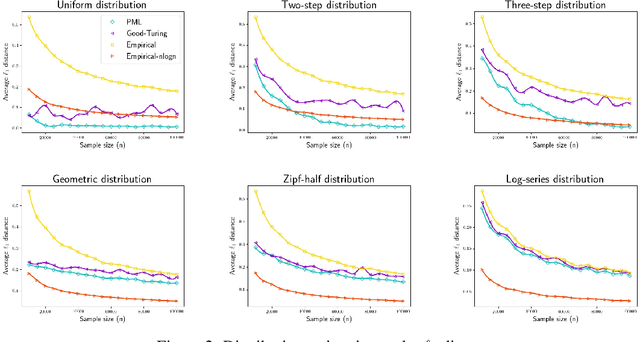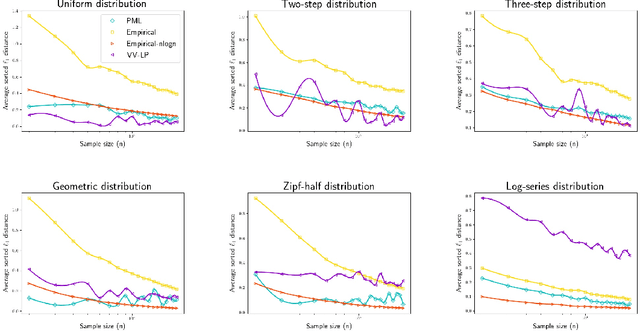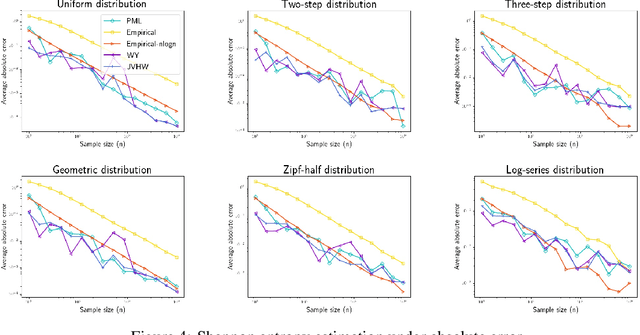The Broad Optimality of Profile Maximum Likelihood
Paper and Code
Jul 11, 2019



We study three fundamental statistical-learning problems: distribution estimation, property estimation, and property testing. We establish the profile maximum likelihood (PML) estimator as the first unified sample-optimal approach to a wide range of learning tasks. In particular, for every alphabet size $k$ and desired accuracy $\varepsilon$: $\textbf{Distribution estimation}$ Under $\ell_1$ distance, PML yields optimal $\Theta(k/(\varepsilon^2\log k))$ sample complexity for sorted-distribution estimation, and a PML-based estimator empirically outperforms the Good-Turing estimator on the actual distribution; $\textbf{Additive property estimation}$ For a broad class of additive properties, the PML plug-in estimator uses just four times the sample size required by the best estimator to achieve roughly twice its error, with exponentially higher confidence; $\boldsymbol{\alpha}\textbf{-R\'enyi entropy estimation}$ For integer $\alpha>1$, the PML plug-in estimator has optimal $k^{1-1/\alpha}$ sample complexity; for non-integer $\alpha>3/4$, the PML plug-in estimator has sample complexity lower than the state of the art; $\textbf{Identity testing}$ In testing whether an unknown distribution is equal to or at least $\varepsilon$ far from a given distribution in $\ell_1$ distance, a PML-based tester achieves the optimal sample complexity up to logarithmic factors of $k$. Most of these results also hold for a near-linear-time computable variant of PML. Stronger results hold for a different and novel variant called truncated PML (TPML).
 Add to Chrome
Add to Chrome Add to Firefox
Add to Firefox Add to Edge
Add to Edge